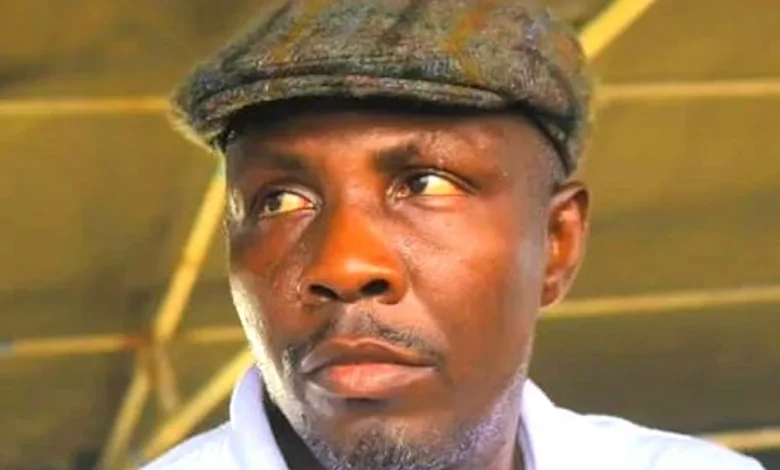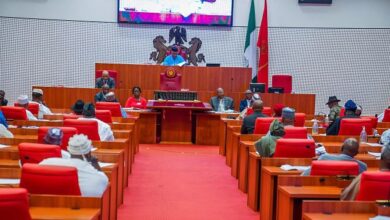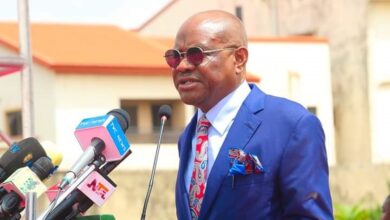Tompolo Alleges Navy Interference in Oil Theft Crackdown, Warns of Powerful Opposition
Security contractor raises alarm over confrontation with military during vessel interception

High Chief Government Ekpemupolo, widely known as Tompolo, has raised serious concerns about a recent confrontation between his security team and Nigerian Navy personnel in Port Harcourt, casting a shadow over Nigeria’s celebrated increase in crude oil production to 1.8 million barrels per day.
Speaking during a visit by the Nigerian Bar Association (NBA) delegation to Oporoza, the headquarters of Gbaramatu Kingdom in Delta State, Tompolo, who chairs Tantita Security Services Nigeria Limited, detailed a troubling incident where Navy personnel allegedly fired shots at his security team, which included officials from the Department of State Services (DSS) and the Nigeria Security and Civil Defence Corps (NSCDC).
The security contractor, whose firm works under contract with the Nigerian National Petroleum Company Limited (NNPC) to protect oil pipelines, revealed the growing tensions between his organization and powerful figures involved in oil theft. “What we want is for you to support the President of this country and Tantita Security services because while doing this work, we are stepping on a lot of toes who are the big boys over there in Lagos and Abuja,” Tompolo stated.
The security chief painted a picture of personal risk and institutional resistance, noting that his efforts to combat oil theft have made him a target. “As I am here, I cannot travel anywhere because of the key people fighting this battle. If I want to travel to Abuja to visit the President or to visit you, I have to go with security men,” he revealed, adding that some security personnel are “now even working with people that are top players of oil theft.”
NBA Pledges Support for Anti-Oil Theft Campaign
The NBA delegation, led by its President Mazi Afam Osigwe, visited as part of a fact-finding mission to address oil theft and challenges faced by oil-producing communities in the Niger Delta. During their visit, Osigwe emphasized the association’s commitment to combating economic losses from oil theft.
“As Nigerians, our fates are tied together. We have a common interest in seeing that the Nigerian economy works, a common interest in seeing that the commonwealth of Nigeria is protected for the well-being of every person,” Osigwe stated. He revealed that the NBA’s recent National Executive Council meeting specifically addressed oil theft due to its impact on Nigeria’s economy and OPEC quota.
The delegation also met with the Pere of Gbaramatu Kingdom, His Majesty, Oboro-Gbaraun II, who highlighted the paradox of oil-producing communities. Despite being host to Nigeria’s major source of revenue, he noted that “the presence of government is even far from us. All these you are seeing are from the efforts of our elites.”
The monarch used the opportunity to appeal for the establishment of a magistrate court in the area, advising the NBA president that “before concluding your judgments, par adventure, a land case, you should come to see for yourself before the final judgment.”
Osigwe expressed optimism about Nigeria reaching two million barrels per day oil production by December, noting that increased oil earnings would reduce government borrowing and enable more infrastructure development. He called on legal practitioners in the region to join the NBA’s efforts, stating, “We also call on our colleagues in this community and, indeed, other communities to join hands with the NBA to see in what way, we can contribute in this regard, in getting a better Nigeria.”
The Business Impact: Oil Theft’s Shadow Over Nigeria’s Economic Recovery
The confrontation between Tantita Security and the Nigerian Navy, in addition to Tompolo’s allegations of high-level complicity in oil theft, raises serious concerns for Nigeria’s oil sector and economic recovery. At a time when the country celebrates reaching 1.8 million barrels per day in crude oil production and aims for 2 million barrels by December, these security challenges threaten to undermine potential gains. The situation creates a complex risk environment for international investors and oil companies operating in the Niger Delta, leading to higher security costs and operational uncertainties. Moreover, the alleged involvement of “big boys” from Lagos and Abuja suggests a sophisticated network of illegal operations involving highly placed elites that could deter legitimate investments in the sector.
The economic implications extend beyond immediate revenue losses. With Nigeria currently struggling with currency devaluation and inflation, any disruption to oil production directly impacts foreign exchange earnings and fiscal stability. The conflict between government-sanctioned security contractors and the Nigerian Navy also raises questions about institutional coordination in protecting critical national infrastructure which may affect Nigeria’s ability to consistently meet OPEC quotas and maintain the increased production levels necessary for economic recovery.






